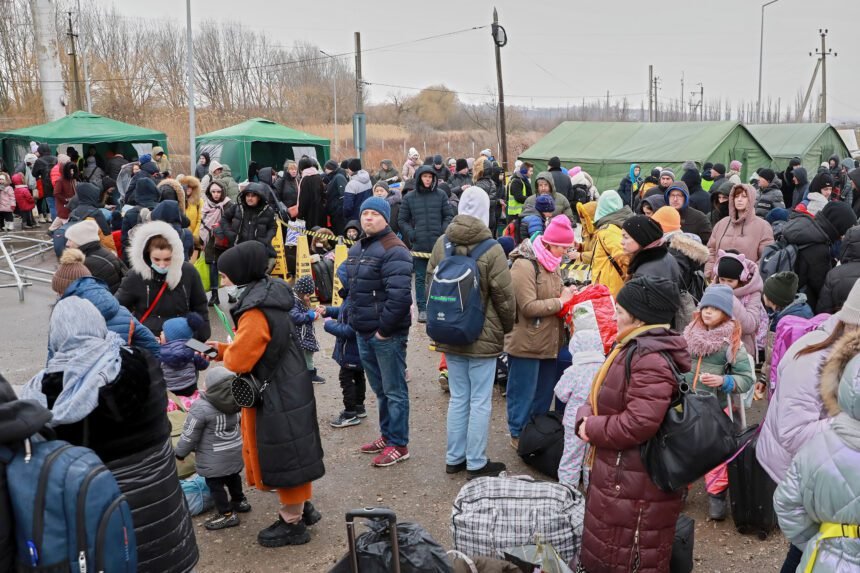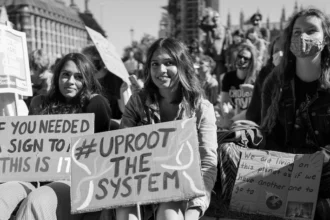The plight of internally displaced persons (IDPs) in Ukraine is a subject that has garnered international attention but still remains largely misunderstood. While the world focuses on refugees crossing international borders, IDPs suffer in silence within their own countries. In Ukraine, the situation is exacerbated by ongoing armed conflicts, making the legal protection of IDPs not just a humanitarian issue but also a complex legal challenge.
Ukraine has made significant strides in establishing a legal framework to protect IDPs. Laws such as Ukraine’s No. 3460-VI on Free Legal Aid and the Civil Procedural Code have been enacted to provide free legal aid and court fee exemptions to IDPs. However, these laws are not without their limitations. For instance, while they offer free legal aid for a range of issues—from restoring lost documents to obtaining financial assistance—they fall short in addressing the unique challenges IDPs face, especially during martial law.
According to the Ministry of Justice of Ukraine, IDPs rank third in the number of applications for free legal aid, with around 80,000 people seeking help. The majority apply for basic needs like restoring lost documents and obtaining financial assistance. However, the laws in place do not fully cover the spectrum of legal issues IDPs encounter. For example, during martial law, IDPs often apply for the establishment of facts of legal significance, such as birth or death certificates, which are not adequately covered by existing laws.
The Comparative Lens: Learning from International Experiences
While Ukraine has its unique set of challenges, it’s crucial to look at international practices for protecting IDPs. Countries like Cyprus, Croatia, Bosnia and Herzegovina, and Georgia have faced similar issues due to armed conflicts and have developed mechanisms to address them. For instance, Serbia introduced a program called “Rural Houses,” encouraging IDPs to buy and restore old houses in the countryside. Ukraine has a similar program called “Affordable Housing,” which provides state support for IDPs to purchase new homes.
However, the international community has not yet developed a comprehensive framework for IDPs, unlike the UN Convention on the Status of Refugees for refugees. Most countries rely on their national laws and adapt international guidelines like the UN Guiding Principles on Internal Displacement and the Recommendations of the Committee of Ministers of the Council of Europe. These guidelines, although not legally binding, offer a roadmap for countries to develop their national laws.
In the case of Ukraine, the laws enacted by the Verkhovna Rada and the Cabinet of Ministers have largely aligned with these international principles. Yet, the ongoing full-scale war with Russia has led to an ever-increasing number of IDPs, necessitating the need for Ukraine to continually adapt and update its legal frameworks. This is where learning from international practices can offer valuable insights.
The Road Ahead: Challenges and Opportunities
The issue of IDPs is not just a Ukrainian problem; it’s a global challenge that requires both national and international solutions. While Ukraine has made significant strides in legislating protections for IDPs, the work is far from over. The ongoing conflict with Russia continues to displace more people, exacerbating existing challenges and creating new ones.
One of the most pressing issues is ensuring equal access to justice for all, a task that becomes increasingly complex in wartime. Free legal aid and court fee exemptions are steps in the right direction, but they don’t solve all the problems. Alternative out-of-court mechanisms could offer faster, cheaper resolutions while maintaining the dignity and relationships of the parties involved.
Moreover, the international community needs to step up its efforts. The existing international guidelines are not legally binding and place the onus of protection primarily on the state. This approach leaves countries like Ukraine to fend for themselves, often reinventing the wheel when effective mechanisms already exist elsewhere.
To truly protect the rights and dignity of IDPs, we need a multi-pronged approach that involves national governments, international organizations, and civil society. Only then can we hope to address the complex, multifaceted challenges that IDPs face, not just in Ukraine but around the world.
Conclusions: A Call to Action for a Comprehensive Approach
In the face of an ongoing conflict and an ever-growing number of internally displaced persons, Ukraine has shown resilience and adaptability in legislating protections for IDPs. However, the task is monumental and far from complete. While legal frameworks exist, their implementation and the practical realities of ensuring justice and dignity for IDPs present significant challenges.
The international community, too, must recognize its role in this crisis. Existing guidelines and recommendations are not enough. What is needed is a binding international framework that obligates not just the state but also the global community to protect and assist IDPs.
The issue of IDPs is not one that can be solved by legal measures alone. It requires a comprehensive, multi-pronged approach that involves not just the government but also civil society, international organizations, and the IDPs themselves. Only through collective action can we hope to address the myriad challenges that IDPs face and ensure a future where their rights and dignity are not just protected but also upheld.
This article serves as a call to action for all stakeholders involved. The time for comprehensive, effective solutions is now. We must act before the challenges become insurmountable, and the plight of IDPs becomes a permanent stain on our collective conscience.
Adapted from an academic study for a wider audience, under license CC BY.









